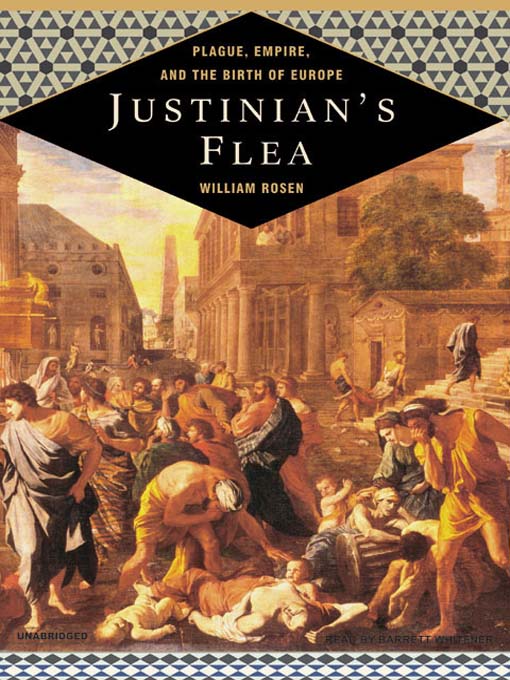
Justinian's Flea
Plague, Empire, and the Birth of Europe
فرمت کتاب
audiobook
تاریخ انتشار
2007
نویسنده
Barrett Whitenerناشر
Tantor Media, Inc.شابک
9781400173853
کتاب های مرتبط
- اطلاعات
- نقد و بررسی
- دیدگاه کاربران
نقد و بررسی

Described as a chronicle of "the collision of the world's smallest organism with the world's mightiest power," Rosen's work promises a sweeping examination of the Golden Age of Constantinople. Rich in the detail so beloved by fans of historical narrative, the story is as compelling and dramatic as a novel. All of this makes Barrett Whitener's atonal narration that much more disappointing. Whitener has previously won Earphone Awards, leading one to anticipate a performance reflecting the "passion, panache, and attitude" heralded in the book's reviews. But, although his voice is clear, his tone and performance are flat. Whitener's narration does not enhance the experience of listening to this unique historical work. M.O.B. (c) AudioFile 2007, Portland, Maine

March 12, 2007
What might be called "microbial history"—the study of the impact of disease on human events—is a subject that has received great attention in recent years. Rosen's new book follows John Barry's The Great Influenza
and John Kelly's The Great Mortality.
An editor and publisher for more than a quarter century, Rosen absorbingly narrates the story of how the Byzantine Empire encountered the dangerous Y. pestis
in A.D. 542 and suffered a bubonic plague pandemic foreshadowing its more famous successor eight centuries later. Killing 25 million people and depressing the birth rate and economic growth for many generations, this unfortunate collision of bacterium and man would mark the end of antiquity and help usher in the Dark Ages. Rosen is particularly illuminating and imaginative on the "macro" aftereffects of the plague. Thus, the "shock of the plague" would remake the political map north of the Alps by drawing power away from the Mediterranean and Byzantine worlds toward what would become France, Germany and England. Specialist historians may certainly dislike the inevitable reductionism such a broad-brush approach entails, but readers of Collapse
and Guns, Germs, and Steel,
Jared Diamond's grand narratives, will find this a welcome addendum.

























دیدگاه کاربران